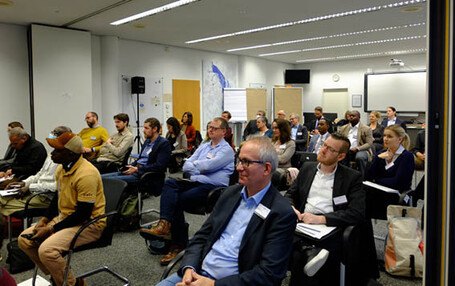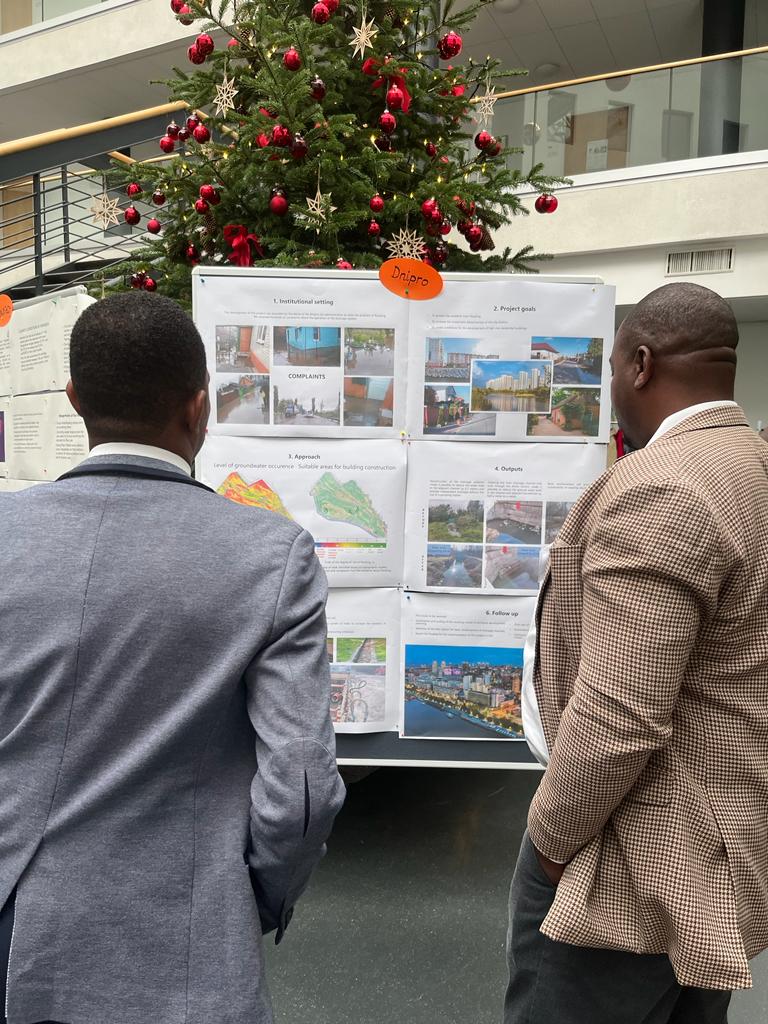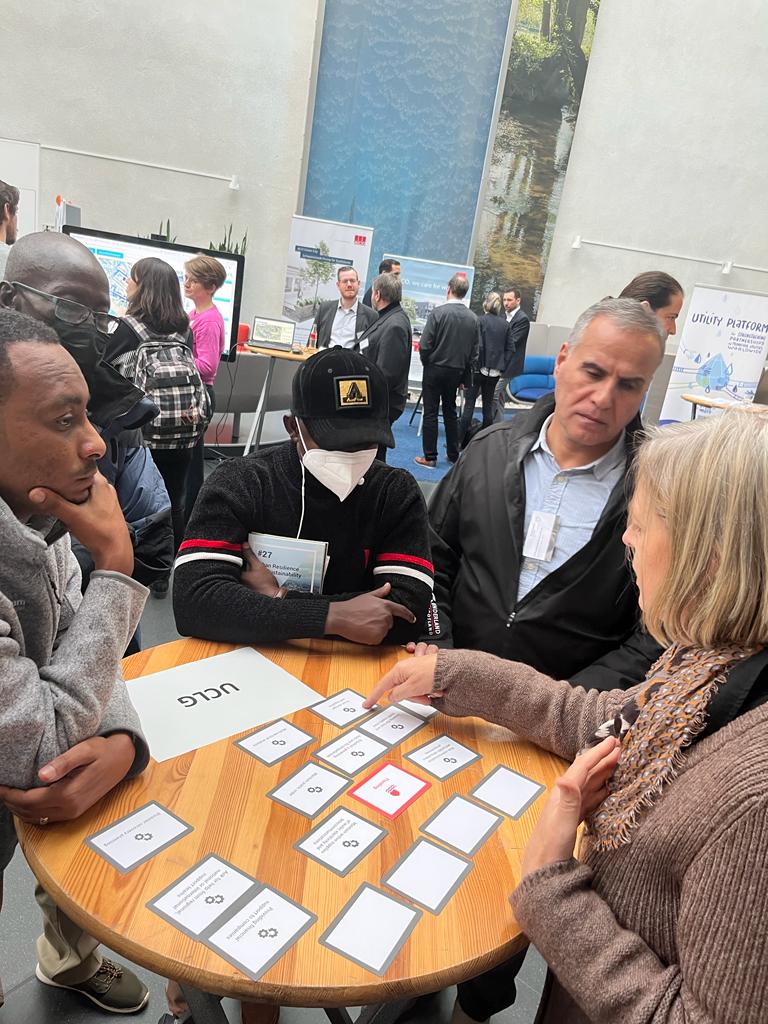
From the 6th to the 8th of December 2022, StEB, the Municipal Drainage Operator of the City of Cologne (Germany), hosted the peer learning event on “The Role of Rain and Storm Water Management in Water Sensitive Urban Planning”, organized by Connective Cities and United Cities and Local Governments (UCLG).
Not often there is such a clear connection to climate change as in the adaptation to the changes in the water cycle. In this sense, StEB is fast in updating data and technologies to manage rain and stormwater, and the city of Cologne has become well known for the flood protection system developed over the last years. Nevertheless, as the director of the public utility company Dr. Werker highlights, the technical solution is relative, as clear communication and involvement of the citizens is also key for any emergency, and here Cologne can learn in particular from the South.
During two and a half days, the StEB offices became the venue for the exchange of knowledge on rain and storm water management between experts from more than eight German cities -such as Hamburg, Düsseldorf, Hagen, the Ahrtal region, etc.-, as well as cities from the rest of the world, including Dnipro (Ukraine), Banjul (The Gambia), Mwanza (Tanzania), Kigali (Rwanda), Zarqa (Jordan) and Rio de Janeiro (Brazil). The topics discussed were technical, such as how Nature-based Solutions can help achieve real "sponge cities"; financial, such as how to access funding for flood prevention systems; and social, such as how to encourage citizen participation in the management and prevention of stormwater disasters, among many others.

The event was structured in four different phases: (i) a thematic introduction; (ii) the exchange of good practices; (iii) the peer consulting; and (iv) the development of common projects. As such, the methodological approach chosen for the implementation of this international dialogue event was highly participatory and practice-oriented. This was meant to ensure that the practitioners taking part communicated their respective practical context and received feedback on a concrete challenge they are facing, as a way to achieve common learning.
In the last part of the event, the foundations were laid for future project activities that generate solutions to achieve water sensitive urban planning in the City of Banjul (The Gambia), the Municipality of Zarqa (Jordan), and the Region of Ahrtal (Germany), where last year a major disaster resulted in almost 200 inhabitants losing their lives. Participants return to their cities not only with many lessons learnt and inspirations to address their problems, but also with agreements that were arranged reaching beyond the conclusion of the event. Both organizations, Connective Cities and UCLG will continue to support the municipal practitioners in the development of their common projects, and promote cooperation through learning programmes, virtual project workshops up to mutual project consulting.











